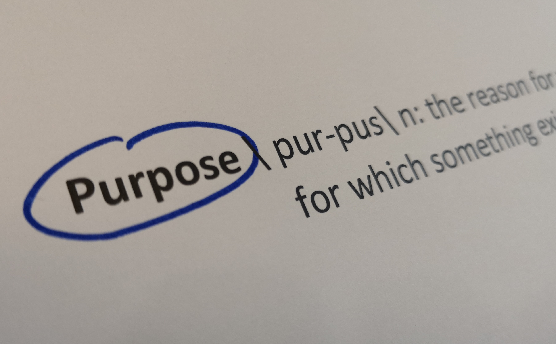One of the key trends within the corporate world in 2018 was the movement towards corporate ‘purpose’ – identifying what drives a company outside of purely financial gain and framing decision-making and business processes around this. Indeed the Financial Times published a weekend long read article on this at the beginning of the year. It’s a trend that’s set to continue into 2019.
In theory, a commitment to corporate purpose should connect a company more with its employees, customers, communities, and the wider economy – particularly if it is well communicated to those audiences. It would, therefore, be hard to argue that a greater focus on business purpose, particularly at board level, is a bad thing. For the sake of clarity, I am not making that argument here. For a number of clients which I have supported in either investigating their purpose or in communicating it – both internally and externally – it has been highly valuable.
Purpose encourages organisations to take a detailed look at what makes them successful, what matters to them and how they interact with the world around them. It should also bring to the fore many of the questions and topics that CSR leasers have been championing for years, including questions like ‘how does our business contribute to our environment and to our society?’ and ‘how can we build trust with our customers and those who influence how we do business?’.
But (there’s always a but), leaving aside the ongoing issues of what ‘purpose’ actually means, how it is interpreted and how and whether it is measured in any meaningful way, this increased focus on purpose may result in many of the issues, activities and engagement previously within the remit of Corporate Social Responsibility being bundled into corporate purpose. Many – but not ALL. And there-in lies a potential problem.
While those elements of CSR which fit within purpose will receive the focus they deserve, there is a risk that aspects of CSR, perhaps some of the equally important ‘responsibilities’ a company has which do not fit so neatly, will become less of a priority. For example, the purpose of a company may well include consideration of a company’s energy use in facilities or management structures for the business – things which are directly connected to the operation of the business. But, in similar fields, you could see that purpose might not include responsibility for driving local, regional or global recycling efforts, or focusing on gender and wider diversity within the organisation. Responsibilities which are more peripheral to the running of the business but would still definitely be considered responsibilities for corporate organisations. It is very important that in this move towards purpose, organisations don’t lose sight of the ‘R’ in CSR.
Looking at a companies’ purpose and even changing business processes and practices to reflect that purpose doesn’t devolve a company of the responsibility to act ethically across the board all the time. In short, purpose and responsibility are two different things, while they may be areas of overlap, recognising and focusing on the former, does not reduce the later.





Comments